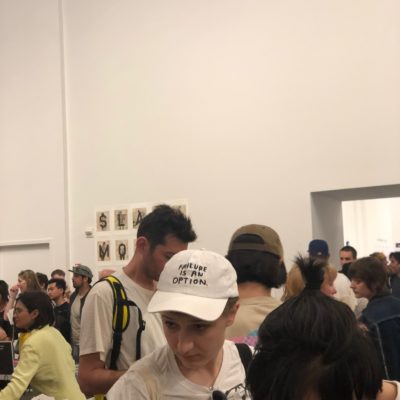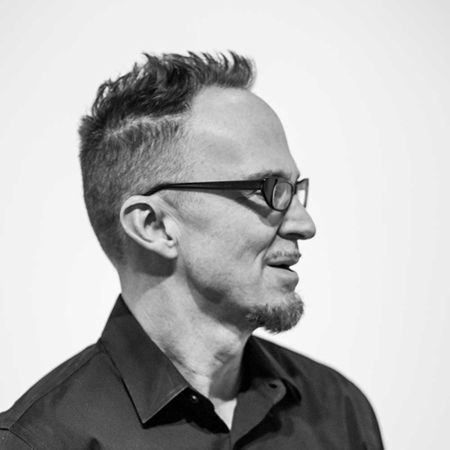Search
To search for an exact match, type the word or phrase you want in quotation marks.
A*DESK has been offering since 2002 contents about criticism and contemporary art. A*DESK has become consolidated thanks to all those who have believed in the project, all those who have followed us, debating, participating and collaborating. Many people have collaborated with A*DESK, and continue to do so. Their efforts, knowledge and belief in the project are what make it grow internationally. At A*DESK we have also generated work for over one hundred professionals in culture, from small collaborations with reviews and classes, to more prolonged and intense collaborations.
At A*DESK we believe in the need for free and universal access to culture and knowledge. We want to carry on being independent, remaining open to more ideas and opinions. If you believe in A*DESK, we need your backing to be able to continue. You can now participate in the project by supporting it. You can choose how much you want to contribute to the project.
You can decide how much you want to bring to the project.

From the Whitechapel volume, Failure, to A*Desk’s May 2019 issue devoted to the subject, the proliferation of art-critical publications on the topic of failure in recent years is striking.[1] As many of the A*Desk texts point out – including the previously archived article “Fail Better” (2015) by Sonia Fernández Pan – an interest in failure is blowing in the contemporary breeze. For failure and its discourse have become an integral mechanism in the success machine of capital and the post-disciplinary control society (Gilles Deleuze). Authors, mentors, lecturers, conference organizers, and life coaches attempt to help everyone embrace and face the failures that propel the relentless recalibration and retraining of “skill sets.” The American “can-do” attitude loves to fail, now that the newfound humility has been pragmatized, operationalized, and aligned with market trends.
And yet at the same time the attention given to failure paradoxically resonates with the monumental catastrophe gripping the planet, the widespread imagining of end times for the anthropocene, and the growing doubts about capitalism’s capacity to retard, let alone reverse, the decay it continues to accelerate.
Beyond the well-deserved skepticism cast on the subject are those texts and projects in the May 2019 A*Desk issue that aim to redeem a more radical potential in failure. These endeavors intend to harness failure as an index pointing beyond the system in which the failing element suffers from dysfunctionality. The exact singularity of the failure instead intimates another system in which the element might, even for the first time, achieve a function, while the perfection of the extant system recoils in inchoate obsolescence.
Notes
[1] Lisa Le Feuvre (ed.), Failure (London: The MIT Press, Whitechapel Gallery, 2010).
[2] Gilles Deleuze, “Postscript on the Societies of Control” in October, Vol. 59. (The MIT Press, Winter, 1992).

Peter Freund is usually working on something else. He writes to avoid making art and makes art to avoid writing. He is a sometimes curator so as to avoid his own work, but usually that inspires him to write or make art. [www.peterfreund.art] Originally from the San Francisco Bay Area (USA), Peter moved to Barcelona in 2018 on an extended leave of absence from his post as Professor of Art at Saint Mary’s College of California. In 2018-19 he had a research residency with the Barcelona Museum of Contemporary Art (MACBA_CED) and a studio residency with the Werner Thöni Artspace. His curatorial project, Retracted Cinema, was presented at Xcèntric (CCCB) in September 2020 and will be followed by a forthcoming article about the program in Found Footage Magazine in 2021. Peter is a visiting artist with the Faculty of Fine Arts at the University of Barcelona, 2018-Present, and a founding member of the Barcelona-based artist collective, Adversorecto, 2020.
"A desk is a dangerous place from which to watch the world" (John Le Carré)